Mortgage rates drop in wake of bank failures
From CNN's Anna Bahney
Mortgage rates dropped this week in the wake of several bank failures, reversing course after rising half a percentage point over the past month. But longer-term uncertainty is expected to hamper many homebuyers and keep the cost of buying unaffordable for many.
The 30-year fixed-rate mortgage averaged 6.60% in the week ending March 16, down from 6.73% the week before, according to data from Freddie Mac released Thursday. A year ago, the 30-year fixed-rate was 4.16%.
After hitting a 2022 high of 7.08% in November, rates had been trending down. However, they started climbing again in February, rising half a percentage point over the past month. Robust economic data suggested the Federal Reserve is not done in its battle to cool the US economy and will likely continue hiking its benchmark lending rate.
But that was before several banks collapsed over the past week. This led investors to flock to the safe haven of Treasury bonds, which pushed yields down and mortgage rates have followed.
"Turbulence in the financial markets is putting significant downward pressure on rates, which should benefit borrowers in the short term," said Sam Khater, Freddie Mac's chief economist.
Stocks rally on news that ailing First Republic Bank could be rescued
US stocks rallied Thursday by mid-morning on reports that ailing US bank First Republic could be rescued by a consortium of large banks, including JPMorgan Chase and Morgan Stanley.
Shares of First Republic continued to plunge, despite the news, and are still trading 27.3% lower on the day. But shares of the SPDR S&P Regional Banking ETF (KRE) surged upward, briefly turning positive. The fund is currently trading down 0.3% for the day.
Swiss-traded shares of Credit Suisse, meanwhile, gained 18% after JPMorgan analysts suggested that the bank, which accepted a loan of up to $53 billion from the Swiss National Bank to "pre-emptively strengthen its liquidity," could be taken over by UBS.
Wall Street traders appeared to brush off earlier fears of hawkish interest rate hikes at the Federal Reserve policy meeting next week. The European Central Bank surprised investors Thursday morning by hiking interest rates by an aggressive half point.
Investors in the US are still betting on an 80% chance of a quarter percentage point hike, according to the CME FedWatch tool. The odds for a half-point hike, they're betting, are zero.
Investors were also listening in to Senate testimony from Treasury Secretary Janet Yellen at 10 a.m. ET. Yellen said the US banking system "remains sound" and that Americans' bank deposits are secure.
Wall Street Journal: First Republic Bank talking to JPMorgan and Morgan Stanley about a lifeline
From CNN's Allison Morrow
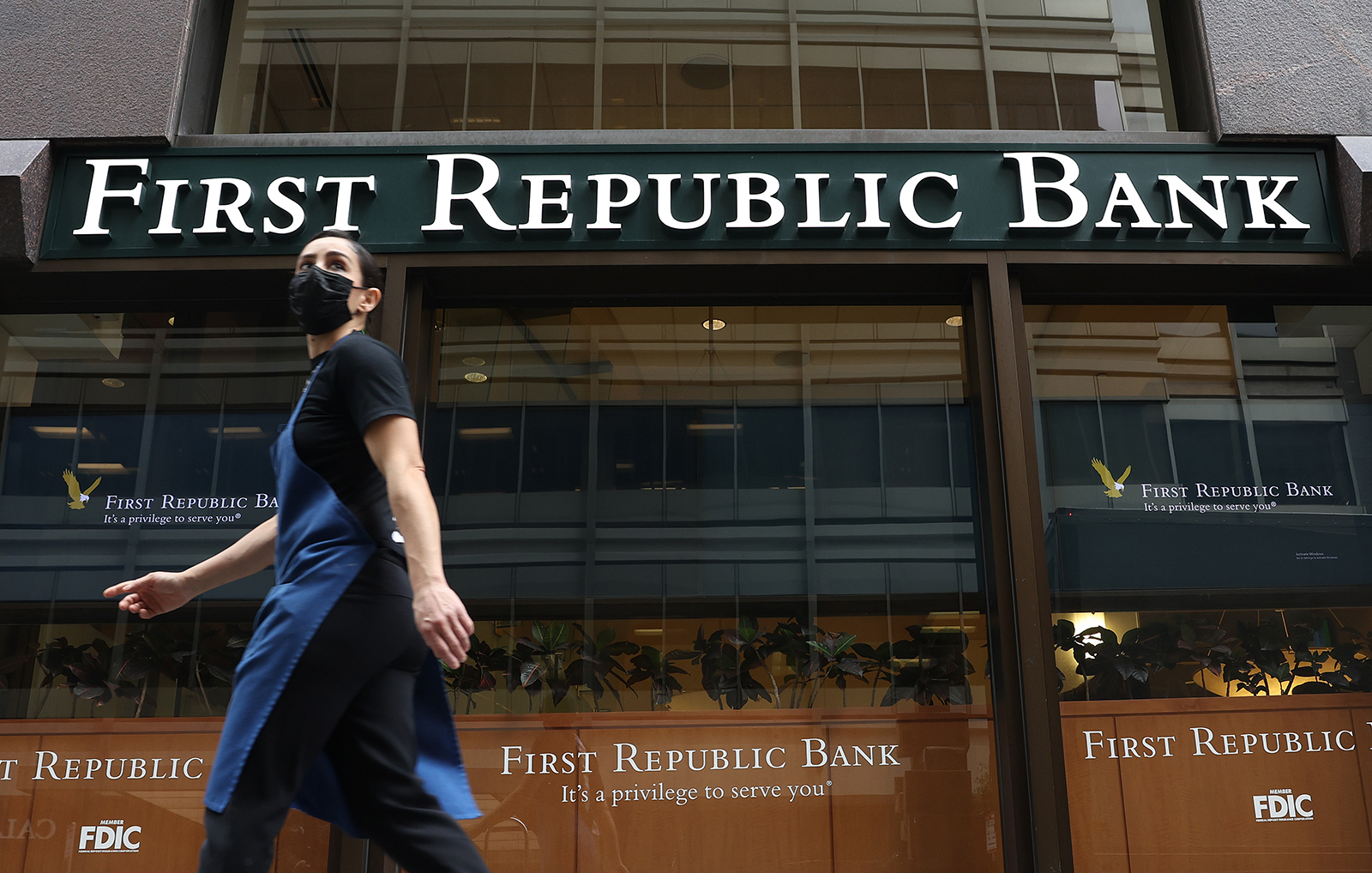 A person walks by the First Republic Bank headquarters on March 13 in San Francisco, California. (Justin Sullivan/Getty Images)
A person walks by the First Republic Bank headquarters on March 13 in San Francisco, California. (Justin Sullivan/Getty Images)First Republic Bank, facing a crisis of confidence from investors and customers, is actively discussing options for a lifeline -- including a takeover, according to the Wall Street Journal.
Participating in the discussions Thursday are massive Wall Street banks, including JPMorgan and Morgan Stanley, the Journal reported. A First Republic spokesman declined to comment to CNN.
Both Fitch Ratings and S&P Global Ratings downgraded First Republic Bank's credit rating on Wednesday on concerns that depositors could pull their cash from the bank. That sent shares plunging 26% Thursday, and the stock tripped several automatic circuit breakers designed to prevent shares from crashing.
First Republic's problems reflect continued worries about the banking system in the aftermath of the collapse of Silicon Valley Bank and Signature Bank. Many regional banks, including First Republic, have large amounts of uninsured deposits above the $250,000 FDIC limit. Although not close to SVB's massive percentage of uninsured deposits (94% of its total), First Republic has a sizable 68% of total deposits that are uninsured, according to S&P Global.
That had led many customers to exit the bank and put their money elsewhere.
First Republic on Sunday announced a deal with JPMorgan to gain fast access to cash if needed, and the bank then said it had $70 billion in unused assets that it could quickly use to pay customers' withdrawals if needed.
On Thursday, as shares plunged, First Republic realized it needed more help, the Journal said. But a deal remains far from certain.
What to do if you're worried your bank is failing
From CNN's Jeanne Sahadi
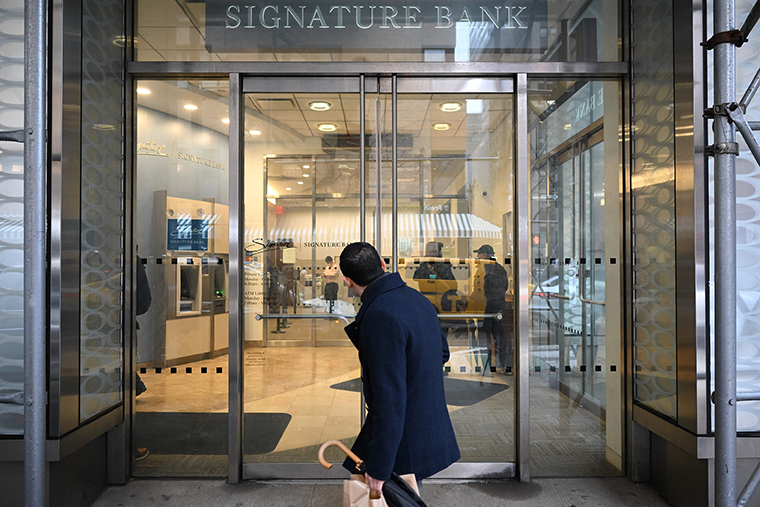 A man walks past a branch of Signature Bank in New York city on March 13. (Ed Jones/AFP/Getty Images)
A man walks past a branch of Signature Bank in New York city on March 13. (Ed Jones/AFP/Getty Images)Among the latest banking sector concerns on Thursday is the fate of First Republic, which is reportedly seeking a sale after its stock fell sharply earlier this week amid a credit downgrade and deposit worries.
For First Republic customers — or any customers whose bank gets intensely scrutinized by investors in the coming days — you may be concerned about the safety of your money. But there's no need, if your account balance is under $250,000 and your bank is insured by the Federal Deposit Insurance Corporation. If it is and your bank fails, the FDIC will guarantee you your money.
If you have more than $250,000 at your bank, you still may be fully covered if your money is spread against different types of accounts. For instance, if you have a joint account with your spouse you will each be covered up to $250,000, for a total of $500,000 in coverage on that account. Then, in addition, if you have your own individual savings or checking account, that will be insured separately up to $250,000.
Alternatively, if you have more than $250,000 at one bank, you could transfer the money above that threshold to new account or two at other FDIC-insured banks, ensuring no one account has more than $250,000 in it.
In any case, the recent failures of SVB and Signature banks in the past week and growing concerns over individual regional US banks is a good reminder to be aware of where your money is held.
“[It’s] is a wake-up call for people to always make sure their money is at an FDIC-insured bank and within FDIC limits and following the FDIC’s rules,” said Matthew Goldberg, a Bankrate analyst.
The FDIC has different resources on its site. The “bank suite” tool offers a list of FDIC-insured banking institutions and the Electronic Deposit Insurance Estimator calculates the insurance coverage of different deposit accounts at banks.
First Republic shares halted
From CNN's Allison Morrow
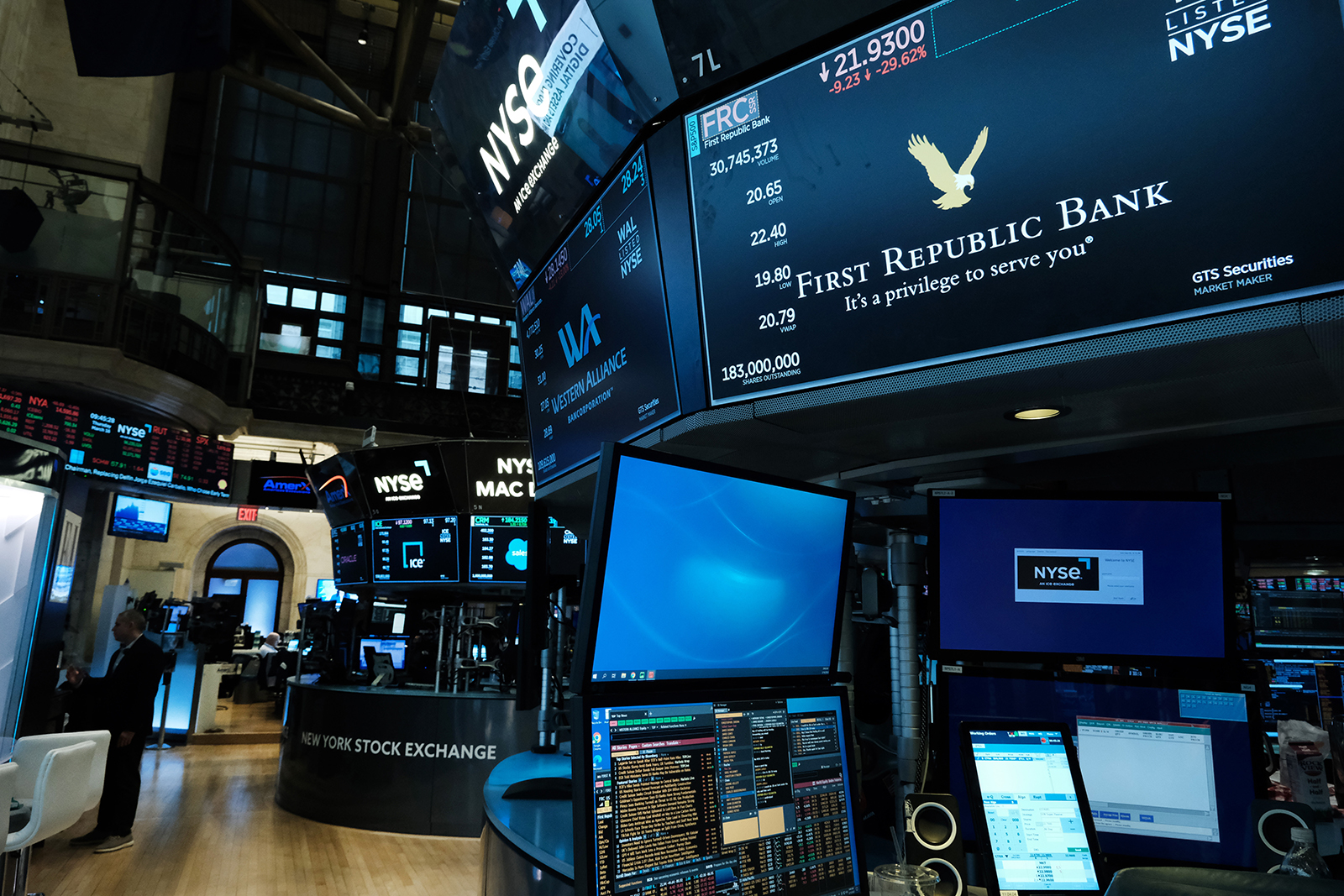 First Republic Bank is displayed on a monitor on the floor of the New York Stock Exchange on March 16. (Spencer Platt/Getty Images)
First Republic Bank is displayed on a monitor on the floor of the New York Stock Exchange on March 16. (Spencer Platt/Getty Images)The New York Stock Exchanged halted trading in shares of First Republic Bank Thursday morning after the stock fell 26%.
Several large banks including JPMorgan and Morgan Stanley were reportedly in talks to rescue First Republic, according to the Wall Street Journal.
Trading resumed at 11:07 am ET.
SVB collapsed because it couldn't meet liquidity needs, Yellen tells Congress
From CNN's Krystal Hur
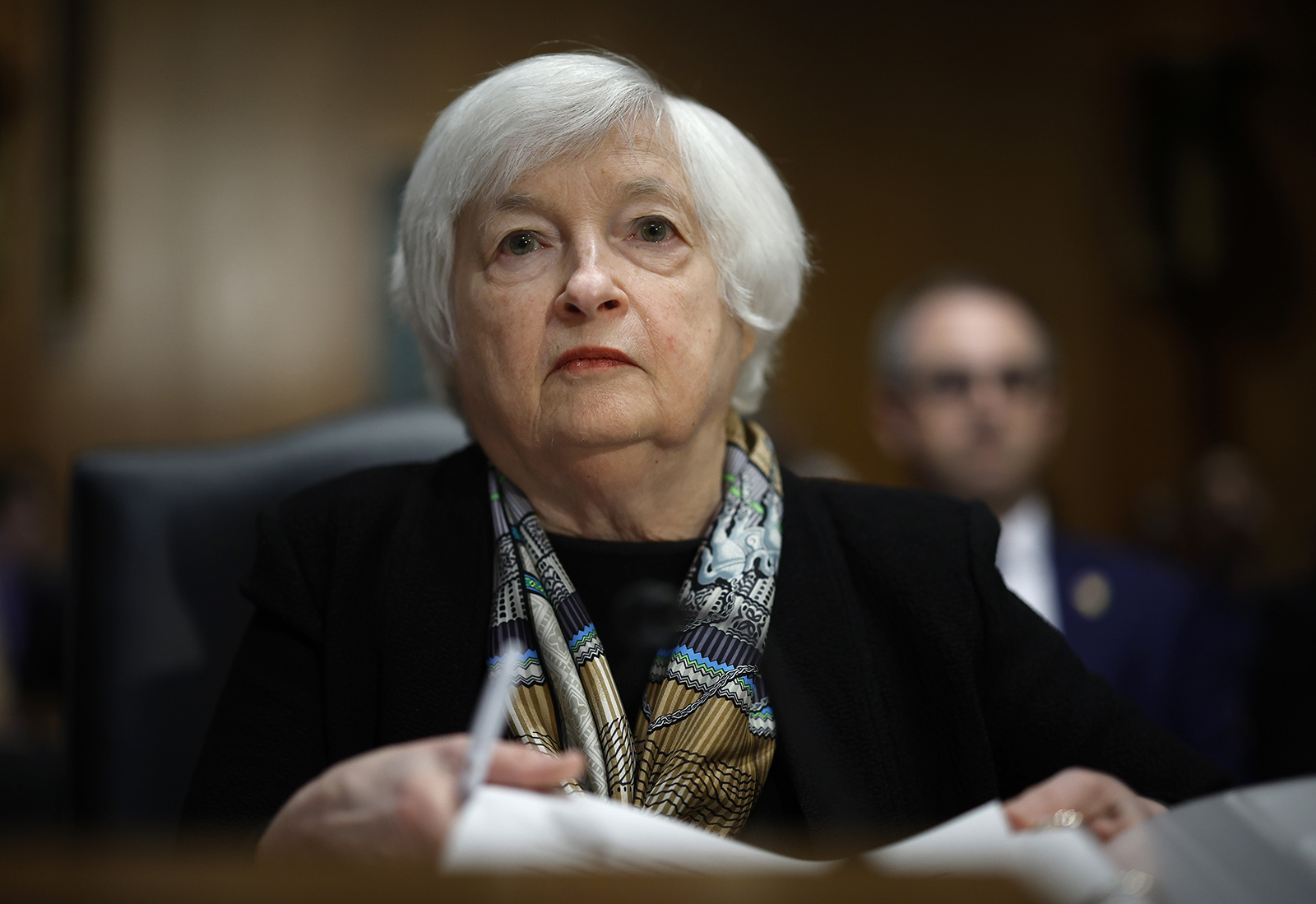 Treasury Secretary Janet Yellen testifies about the Biden Administration's FY2024 federal budget proposal before the Senate Finance Committee in the Dirksen Senate Office Building on Capitol Hill today in Washington, DC. (Chip Somodevilla/Getty Images)
Treasury Secretary Janet Yellen testifies about the Biden Administration's FY2024 federal budget proposal before the Senate Finance Committee in the Dirksen Senate Office Building on Capitol Hill today in Washington, DC. (Chip Somodevilla/Getty Images)Silicon Valley Bank's liquidity issues led to its fall, US Treasury Secretary Janet Yellen said Thursday during testimony before the Senate Finance Committee.
"There was a run on the bank. It had high reliance on insured deposits. There was a massive withdrawal of deposits that led to a liquidity problem. The bank had to be closed for that reason," Yellen said.
SVB and Signature Bank collapsed last week, sending shockwaves through the banking sector as regional bank customers rushed to withdraw their funds and the US government intervened to contain the panic.
"There was a liquidity risk in this situation. There will be a careful look at what happened in the bank and what initiated this problem. But clearly the downfall of the bank, the reason it had to be closed, was that it couldn’t meet depositors' withdrawal requests," Yellen said.
Europe’s bank stocks wobble after ECB rate hike
From CNN's Anna Cooban
Shares in Europe’s banks were ticking slightly higher Thursday afternoon, recovering earlier losses following the European Central Bank’s decision to raise its main interest rate by half a percentage point.
Europe’s benchmark Stoxx Europe 600 Banks index, which tracks 42 big EU and UK banks, fell 1% in afternoon trade following the ECB’s announcement, before recovering to trade up 0.8%. London’s bank-heavy FTSE 100 index initially fell 0.2%, but was trading 0.6% higher mid-afternoon.
Markets had been expecting the ECB to either pause or lower its rate hike to prevent further turmoil in banking stocks this week. But the central bank judged inflation to pose a bigger risk to Europe’s economy.
European Central Bank hikes rates by half a point
From CNN's Hanna Ziady
 The headquarters of the European Central Bank (ECB) stands at twilight on February 2 in Frankfurt, Germany. (Andreas Rentz/Getty Images)
The headquarters of the European Central Bank (ECB) stands at twilight on February 2 in Frankfurt, Germany. (Andreas Rentz/Getty Images)The European Central Bank (ECB) stuck with its plan to hike interest rates by half a percentage point Thursday, judging that inflation poses a bigger immediate threat to the economy than turmoil in the banking sector.
“The Governing Council is monitoring current market tensions closely and stands ready to respond as necessary to preserve price stability and financial stability in the euro area,” the ECB said in a statement.
“The euro area banking sector is resilient, with strong capital and liquidity positions. In any case, the ECB’s policy toolkit is fully equipped to provide liquidity support to the euro area financial system if needed and to preserve the smooth transmission of monetary policy.”
The move will take the benchmark rate across the 20 countries that use the euro to 3%. The central bank has now hiked rates at six consecutive meetings since July by a combined 3.5 percentage points in a bid to get inflation under control.
“Inflation is projected to remain too high for too long,” the ECB said.
Some analysts had expected the Bank to opt for a smaller hike of a quarter percentage point to reduce the risk of adding further stress to markets. Banking stocks sold off sharply Wednesday as concerns about the sector’s resilience in the wake of Silicon Valley Bank’s demise spread beyond the United States.
The selloff, which dragged Credit Suisse to a new record low, culminated in the embattled lender accepting a loan from Switzerland’s central bank. The lifeline calmed panicked investors and boosted bank stocks Thursday.
Dow falls by more than 200 points as bank fears grip Wall Street
From CNN's Krystal Hur
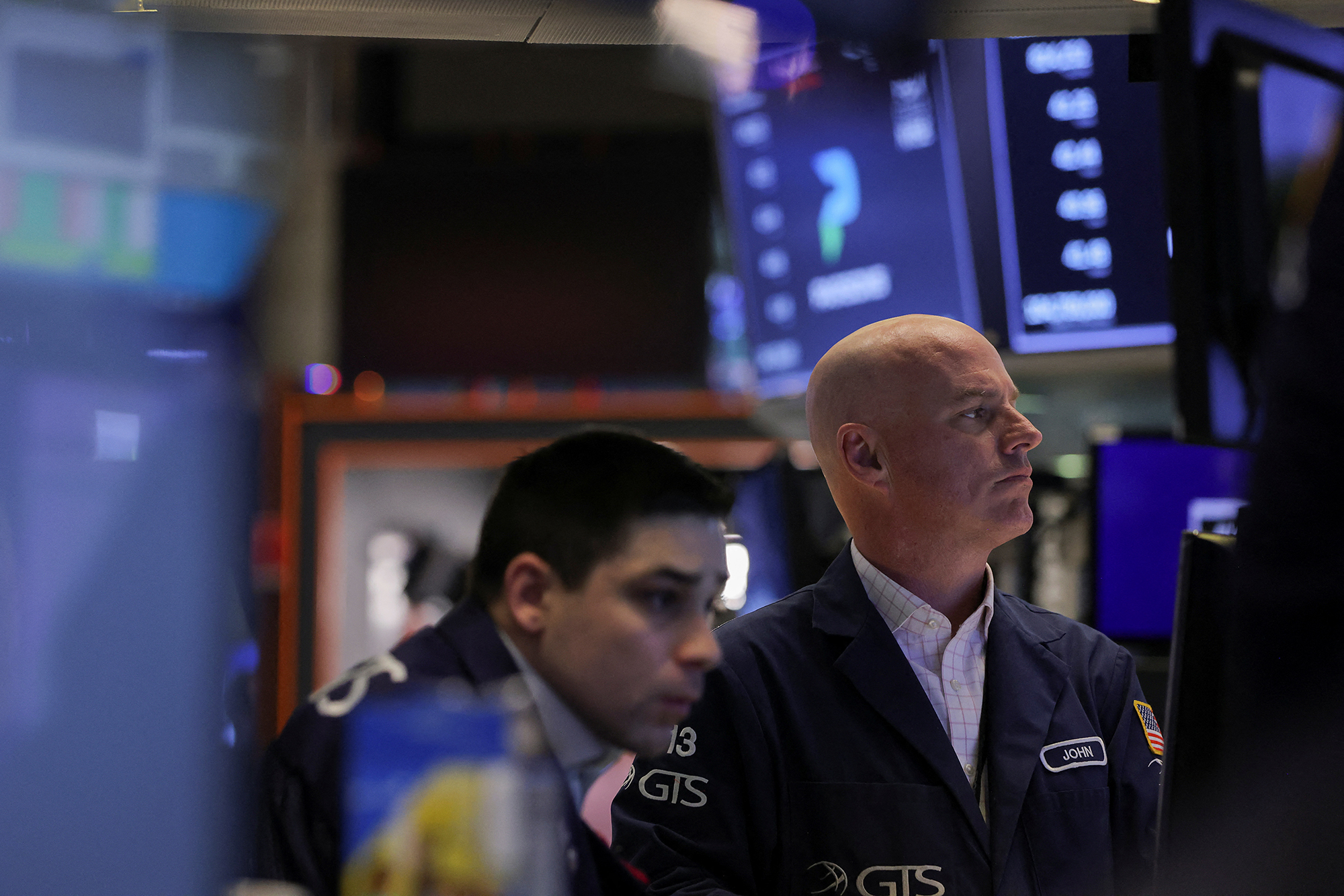 Traders work on the floor of the New York Stock Exchange on March 15, 2023. (Andrew Kelly/Reuters)
Traders work on the floor of the New York Stock Exchange on March 15, 2023. (Andrew Kelly/Reuters)US stocks fell Thursday amid ongoing concern about the banking sector and a rate hike decision from the European Central Bank.
Embattled Swiss lender Credit Suisse said that it would borrow $53 billion from the Swiss National Bank to "pre-emptively strengthen its liquidity" after its shares plunged Wednesday. Meanwhile, US federal regulators continue to grapple with how to prevent more fallout from the collapse of Silicon Valley Bank and Signature Bank.
The ECB said Thursday that it would raise the eurozone interest rate by a half point, a decision that could inform investors about the Federal Reserve's own rate hike call next week. The CME FedWatch Tool shows a roughly 72% probability that the US central bank will raise rates by a quarter point.
Investors will also be listening in to Senate testimony from Treasury Secretary Janet Yellen at 10 a.m. ET. In prepared remarks, Yellen said the US banking system "remains sound" and that Americans' bank deposits are secure.
Shares of US banks continued to get battered. Wells Fargo stock fell about 1.3%. Shares of JPMorgan Chase slipped 1.2%.
US home building climbed 9.8% in February from the previous month after five straight months of declines, according to data released Thursday from the Census Bureau.
The Dow fell about 217 points, or 0.68%.
The S&P 500 slipped 0.6%.
The Nasdaq Composite declined 0.5%.
.png)
 1 year ago
7
1 year ago
7
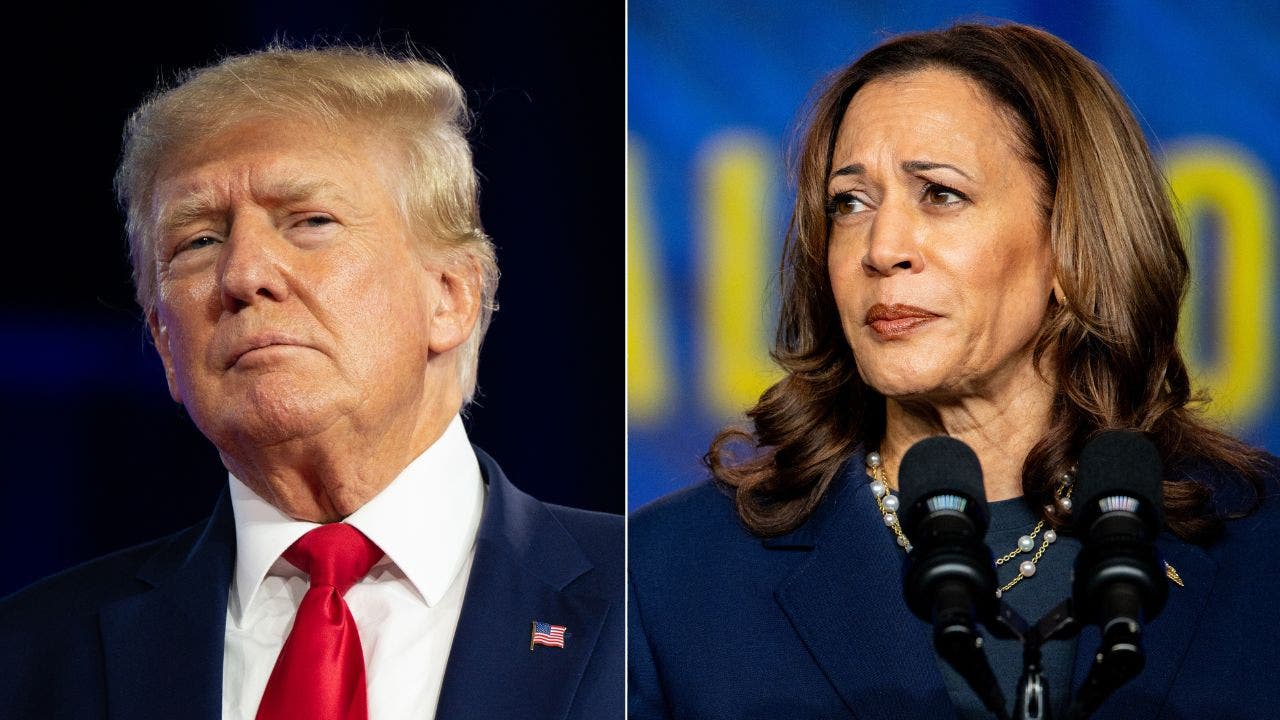

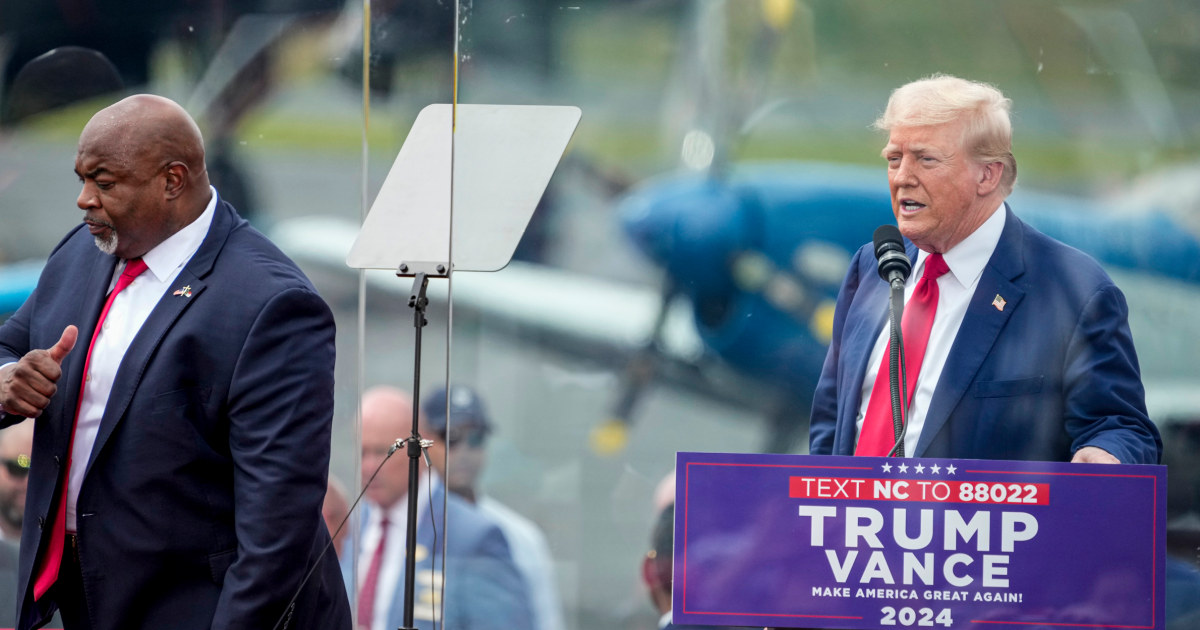






 English (US) ·
English (US) ·